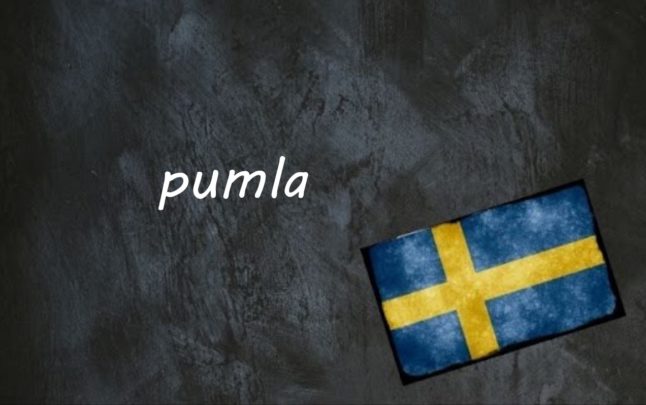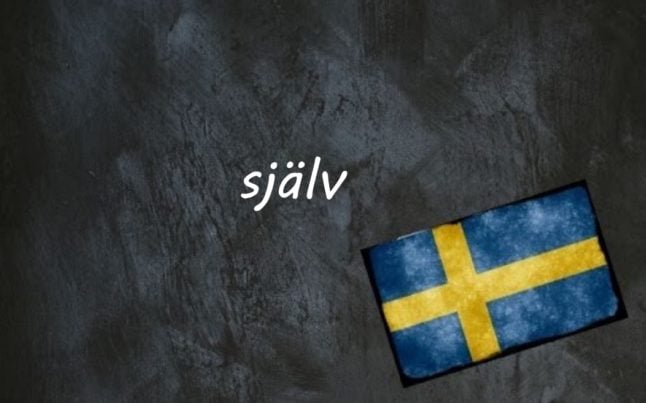Today we’re looking into a festive Swedish word that might just spark a lively debate around the julbord.
That word is pumla, a dialect term for a Christmas bauble, which becomes pumlor in the plural.
In standard Swedish, the compound noun julgranskula (literally “Christmas tree ball”) is used to describe the ornaments.
But in Norrbotten and nearby areas in northern Sweden, pumla is the more popular term. Around Piteå, many people use the alternative word polla, while pommel and póoll are also used in some specific areas.
- Don’t miss any of our Swedish words and expressions of the day by downloading The Local’s new app (available on Apple and Android) and then selecting the Swedish Word of the Day in your Notification options via the User button
These words have German roots and are related to German pummelig, meaning “plump” or “dumpy”, and pummelchen, meaning “chubby”. When pumla was first used in northern Swedish dialects, it meant “round thing” or “ball” generally but is now more commonly heard in the specifically Christmassy sense.
Pumla was added into the official dictionary by the Swedish Academy in 2014 after lively campaigning from speakers of these variants of Swedish.
In fact, an organisation called Pumlans vänner (friends of Pumla) was set up back in 1988 to advocate for pumla‘s entry into the dictionary. The founder, Ove Friman from Luleå, said he was inspired to start the organisation when he asked his partner to get pumlor, who didn’t understand what he meant.
Example sentences
Vi har många pumlor i granen
We have lots of baubles on the Christmas tree
De här pumlorna ser mycket fina ut
These baubles look really pretty
Villa, Volvo, Vovve: The Local’s Word Guide to Swedish Life, written by The Local’s journalists, is available to order. Head to lysforlag.com/vvv to read more about it. It is also possible to buy your copy from Amazon US, Amazon UK, Bokus or Adlibris.



 Please whitelist us to continue reading.
Please whitelist us to continue reading.
Member comments